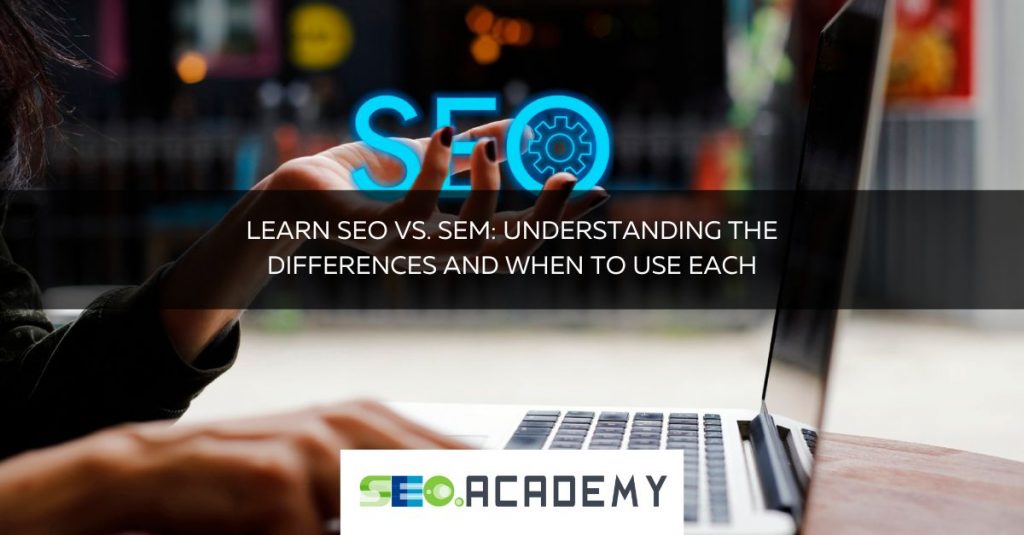In the world of digital marketing, two acronyms dominate the landscape: SEO (Search Engine Optimization) and SEM (Search Engine Marketing). While they share a common goal of increasing online visibility, they employ different strategies to achieve it.To learn SEO and SEM distinctions is crucial for optimizing your digital marketing efforts. In this article, SEO Academy provides comprehensive insights into these two powerful tools and helps you determine when to use each one.
What is SEO?
SEO, or Search Engine Optimization, refers to the practice of optimizing your website to improve its visibility and ranking on search engine result pages (SERPs) organically. It involves various techniques, such as keyword research, on-page optimization, link building, and content creation. The primary objective of SEO is to attract targeted organic traffic from search engines, enhancing website authority and establishing long-term visibility.
What is SEM?
SEM, or Search Engine Marketing, encompasses paid advertising campaigns that aim to drive immediate traffic to websites. Unlike SEO, which focuses on organic search results, SEM primarily revolves around pay-per-click (PPC) advertising. Popular platforms like Google Ads allow advertisers to bid on keywords and display their ads at the top of search engine results. SEM offers quick visibility and control over targeting, but it comes with a cost.
Learn SEO and SEM in between Key Differences
- Traffic Generation:
SEO aims to generate organic traffic by optimizing websites for search engines, whereas SEM focuses on paid traffic through advertisements. SEO gradually improves visibility over time, while SEM provides immediate visibility but requires ongoing investment.
- Cost:
SEO is a long-term investment with minimal direct costs, focusing on organic optimization techniques. On the other hand, SEM involves paying for clicks or impressions, making it more expensive for sustained visibility.
- Keyword Research:
Both SEO and SEM involve keyword research, but the approach differs. SEO emphasizes organic keyword targeting for content optimization, while SEM focuses on identifying high-converting keywords for paid advertising campaigns.
When to Use SEO:
SEO is ideal for businesses looking to establish a strong online presence in the long run. If you have time and patience to invest in optimizing your website, generating organic traffic, and building credibility, SEO is the way to go. To learn SEO is effective for content-driven websites, blogs, and businesses targeting organic search traffic.
When to Use SEM:
SEM is advantageous when you require immediate visibility and want to reach a broader audience quickly. It is especially useful for time-sensitive promotions, product launches, or businesses operating in highly competitive industries. To learn SEM allows precise targeting options, making it ideal for businesses with specific demographics or geographical focuses.
To learn SEO and SEM, plays crucial roles in digital marketing strategies, but they differ in their approaches and outcomes. Understanding the differences and when to use each tool is essential for maximizing your online visibility and achieving your marketing goals. SEO Academy empowers you with the knowledge and skills needed to implement effective SEO and SEM strategies. By leveraging the power of both, you can create a comprehensive digital marketing plan that drives long-term organic growth and short-term targeted visibility.

